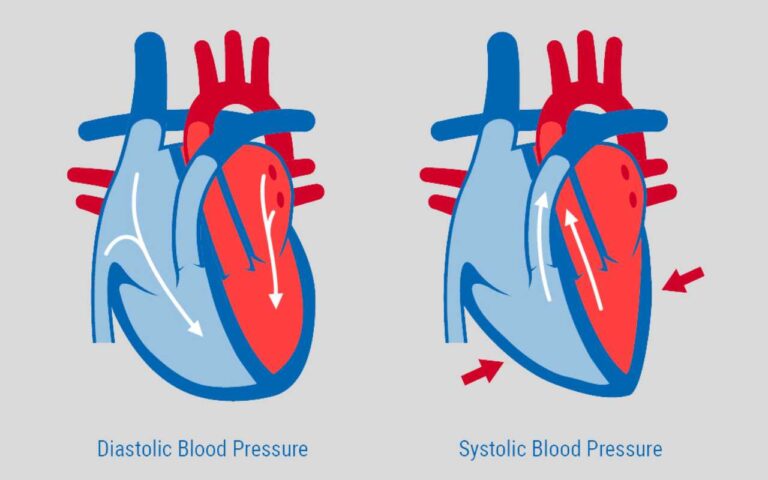How to Strengthen Your Immune System
Strengthen Your Immune System: Maintaining a robust immune system is crucial for overall health and well-being. Your immune system is your body’s defense against infections and diseases. Strengthening it not only helps prevent illnesses but also improves your quality of life. In this article, we will explore how do you boost the immune system, including lifestyle changes, dietary adjustments, and other practical tips. (how to boost an immune system)
Understanding the Immune System
Before diving into the tips, it’s important to understand what the immune system is and how it works. The immune system is a complex network of cells, tissues, and organs that work together to defend your body against harmful invaders like bacteria, viruses, fungi, and toxins. This system includes white blood cells, antibodies, the complement system, the lymphatic system, the spleen, the thymus, and the bone marrow. (immune system how to improve)
The immune system has two primary components: the innate immune system, which you’re born with, and the adaptive immune system, which develops as your body is exposed to pathogens. Both parts work together to keep you healthy. how do you boost the immune system?
1. Maintain a Healthy Diet [Strengthen Your Immune System]
A well-balanced diet is fundamental to a strong immune system. Nutrient-rich foods provide the necessary vitamins, minerals, and antioxidants that your body needs to function effectively. (building your immunity)
a) Eat Plenty of Fruits and Vegetables
Fruits and vegetables are rich in vitamins A, C, and E, and antioxidants that help fight off harmful pathogens. Citrus fruits (immune enhancing foods) like oranges, lemons, and grapefruits are particularly high in vitamin C, which boosts the production of white blood cells. Dark leafy greens like spinach and kale are loaded with vitamins A and C and are excellent for immune function. (immune system boosters)
b) Incorporate Whole Grains and Legumes
Whole grains and legumes are good sources of zinc and selenium, both of which are crucial for immune health. Zinc helps produce and activate T-cells, which are vital for the immune response. Whole grains like oats, brown rice, and quinoa, along with legumes like beans, lentils, and chickpeas, provide fiber and nutrients that support immune function. (system immunity)
c) Include Probiotics and Fermented Foods
Probiotics, found in fermented foods like yogurt, kefir, sauerkraut, and kimchi, promote a healthy gut microbiome. A large part of the immune system is housed in the gut, so maintaining gut health is essential for a strong immune response. (foods boosting immunity) (food to boost immune system)
d) Don’t Forget Protein
Protein is essential for building and repairing tissues, including immune cells. Ensure your diet includes lean proteins like chicken, turkey, fish, eggs, and plant-based options like tofu and tempeh. (immune system functions)
2. Stay Hydrated
Water is vital for the proper functioning of every system in your body, including your immune system. Staying hydrated helps your body produce lymph, a fluid that carries white blood cells and other immune system cells. Dehydration can lead to a weakened immune response, making you more susceptible to illness. (immunology system)
Aim to drink at least 8 glasses of water a day, and increase your intake if you’re active or live in a hot climate. Herbal teas, soups, and water-rich fruits and vegetables like cucumbers and watermelon can also contribute to your hydration needs.
3. Get Regular Exercise
Regular physical activity is one of the pillars of healthy living. It improves cardiovascular health, lowers blood pressure, helps control body weight, and, most importantly, strengthens the immune system.
Exercise helps promote good circulation, allowing the cells and substances of the immune system to move through the body freely and do their job efficiently. Aim for at least 150 minutes of moderate exercise or 75 minutes of vigorous exercise each week. Activities like walking, cycling, swimming, and yoga are all excellent choices.
10 Tips To Stay Hydrated During Workouts
4. Prioritize Sleep
Sleep and immunity are closely linked. During sleep, your immune system releases proteins called cytokines, which help to combat infection and inflammation. Sleep deprivation can reduce the production of these protective cytokines, weakening your immune response. (Strengthen Your Immune System)
Adults should aim for 7-9 hours of sleep per night. Establishing a regular sleep schedule, creating a restful environment, and reducing screen time before bed can help improve your sleep quality.
5. Manage Stress
Chronic stress can take a toll on your immune system. Stress triggers the release of cortisol, a hormone that suppresses the immune response. Over time, high levels of cortisol can lead to inflammation and increase your susceptibility to illness. (Strengthen Your Immune System)
Practicing stress management techniques such as deep breathing, meditation, yoga, and mindfulness can help keep stress levels in check. Additionally, hobbies, socializing, and spending time in nature can also reduce stress and boost your immune health.
6. Maintain a Healthy Weight
Carrying excess weight can impair the function of your immune system. Obesity is linked to chronic inflammation, which can weaken the immune response. Maintaining a healthy weight through a balanced diet and regular exercise can improve immune function and reduce the risk of chronic diseases. (Strengthen Your Immune System)
7. Avoid Smoking and Limit Alcohol Intake
Smoking damages the immune system and makes the body less successful at fighting disease. It also compromises lung health, increasing the risk of respiratory infections. Quitting smoking can significantly improve your immune health.
Alcohol, when consumed in excess, can also weaken the immune system. It interferes with the immune system’s ability to defend against infections and can lead to liver damage, which further hampers immune function. Limit your alcohol intake to moderate levels—no more than one drink per day for women and two for men. (Strengthen Your Immune System)
8. Ensure Adequate Sun Exposure
Sunlight is a primary source of vitamin D, which is crucial for immune health. Vitamin D enhances the pathogen-fighting effects of monocytes and macrophages—white blood cells that are important parts of immune defense—and decreases inflammation.
Aim to get about 10-30 minutes of midday sunlight several times a week. People with darker skin may need more time in the sun to produce adequate levels of vitamin D. During the winter months or if you live in a place with little sunlight, consider taking a vitamin D supplement after consulting with a healthcare provider. (Strengthen Your Immune System)
9. Consider Supplements
While it’s best to get your nutrients from food, supplements can help fill in the gaps if your diet is lacking. Some supplements that may support immune function include:
- Vitamin C: Known for its immune-boosting properties.
- Vitamin D: Supports the immune system, particularly in individuals with low levels.
- Zinc: Essential for immune cell function and signaling.
- Probiotics: Supports gut health, which is closely linked to immune function.
- Elderberry: May reduce the duration and severity of colds and flu.
Always consult with a healthcare provider before starting any new supplement regimen.
10. Stay Up-to-Date with Vaccinations
Vaccinations are a critical component of maintaining a strong immune system. They prepare your immune system to fight off infections by exposing it to a small, harmless piece of the pathogen, helping your body recognize and combat the real thing in the future. (Strengthen Your Immune System)
Ensure you and your family are up-to-date with all recommended vaccines, including the flu shot and other immunizations appropriate for your age and health status. (Strengthen Your Immune System)
11. Practice Good Hygiene
Good hygiene practices, such as regular handwashing, can help prevent the spread of infections. The immune system is less likely to be overwhelmed if you minimize your exposure to pathogens. Washing your hands thoroughly with soap and water, covering your mouth and nose when coughing or sneezing, and avoiding close contact with sick individuals can reduce your risk of illness. (Strengthen Your Immune System)








One Comment